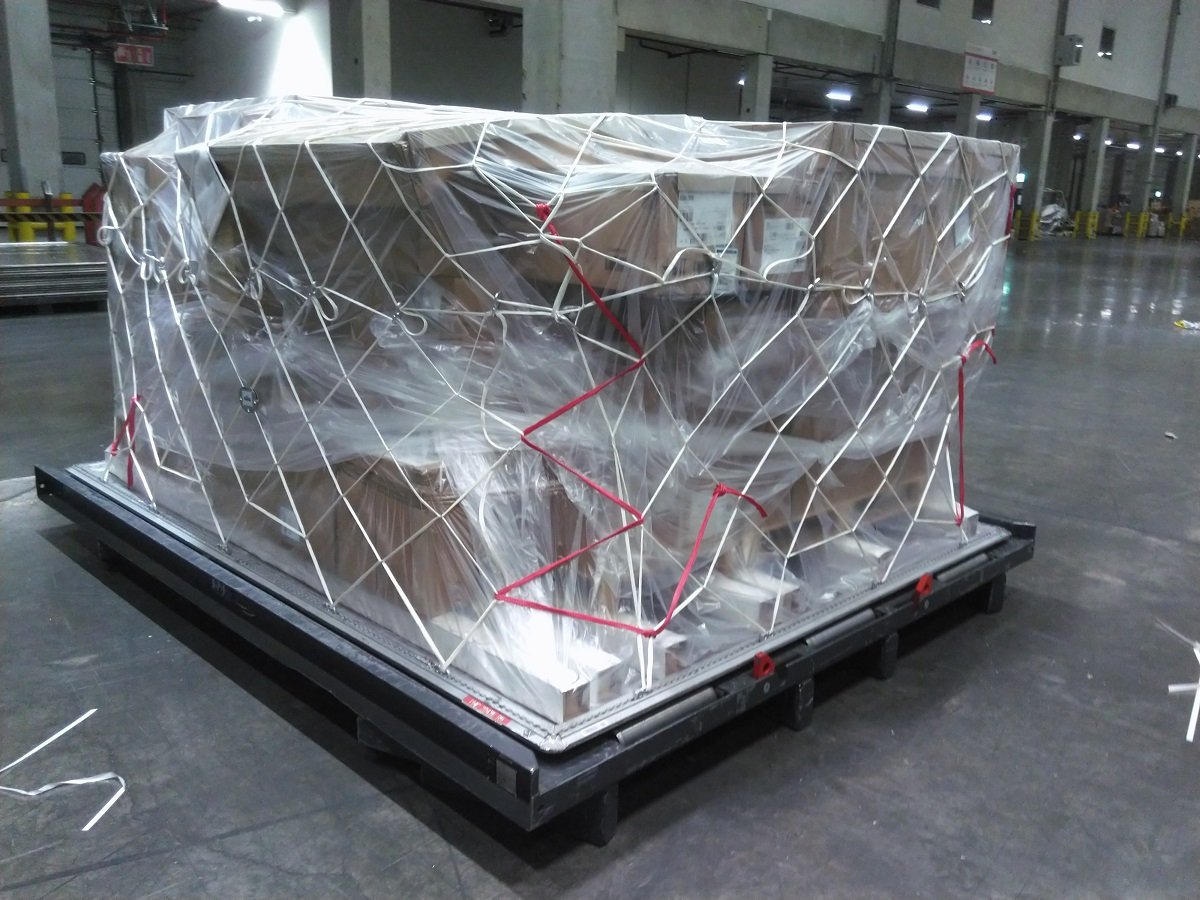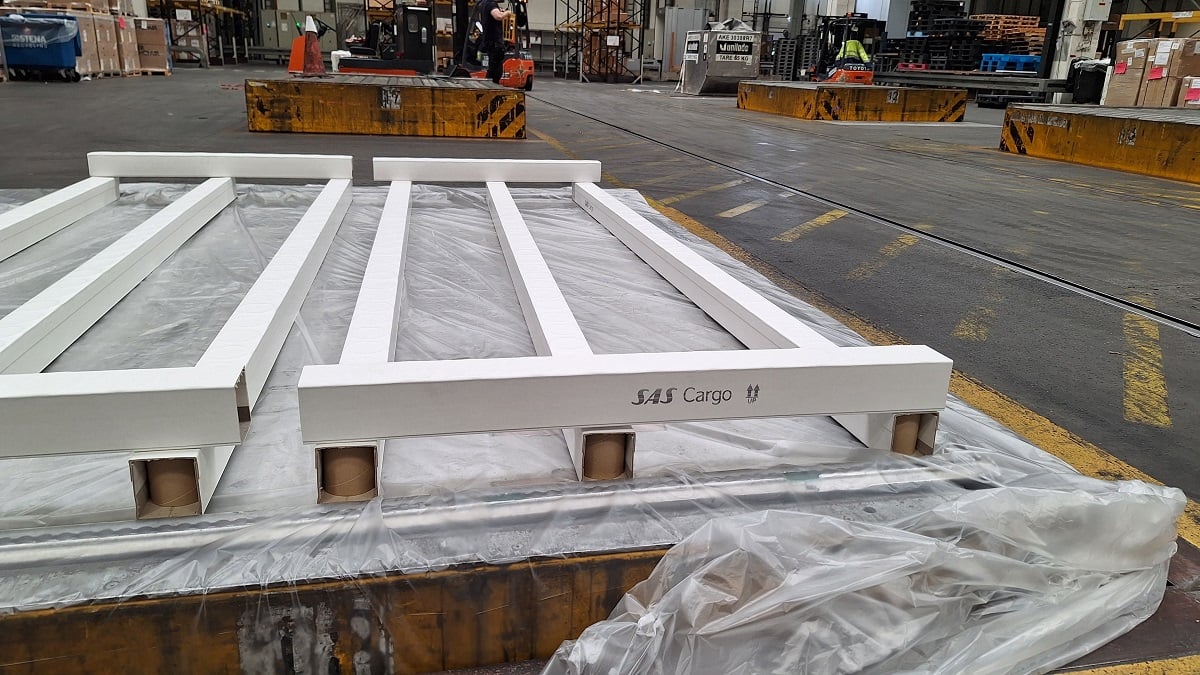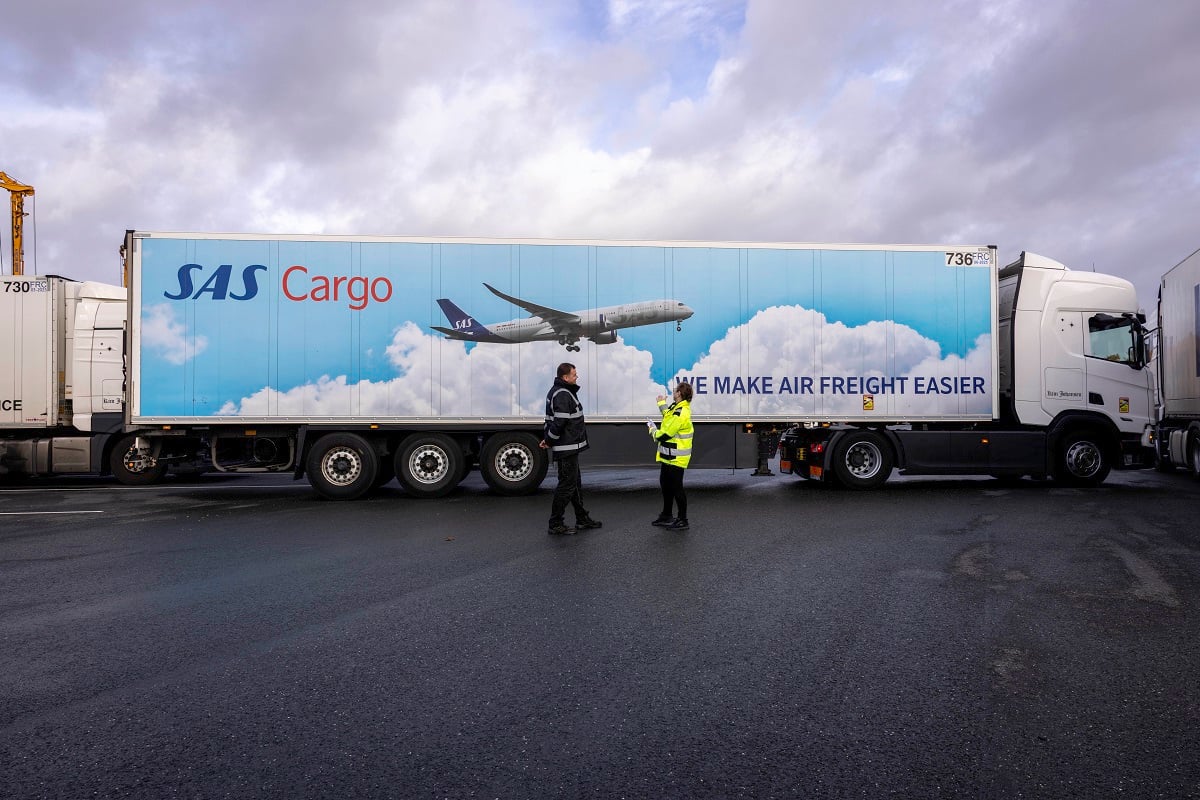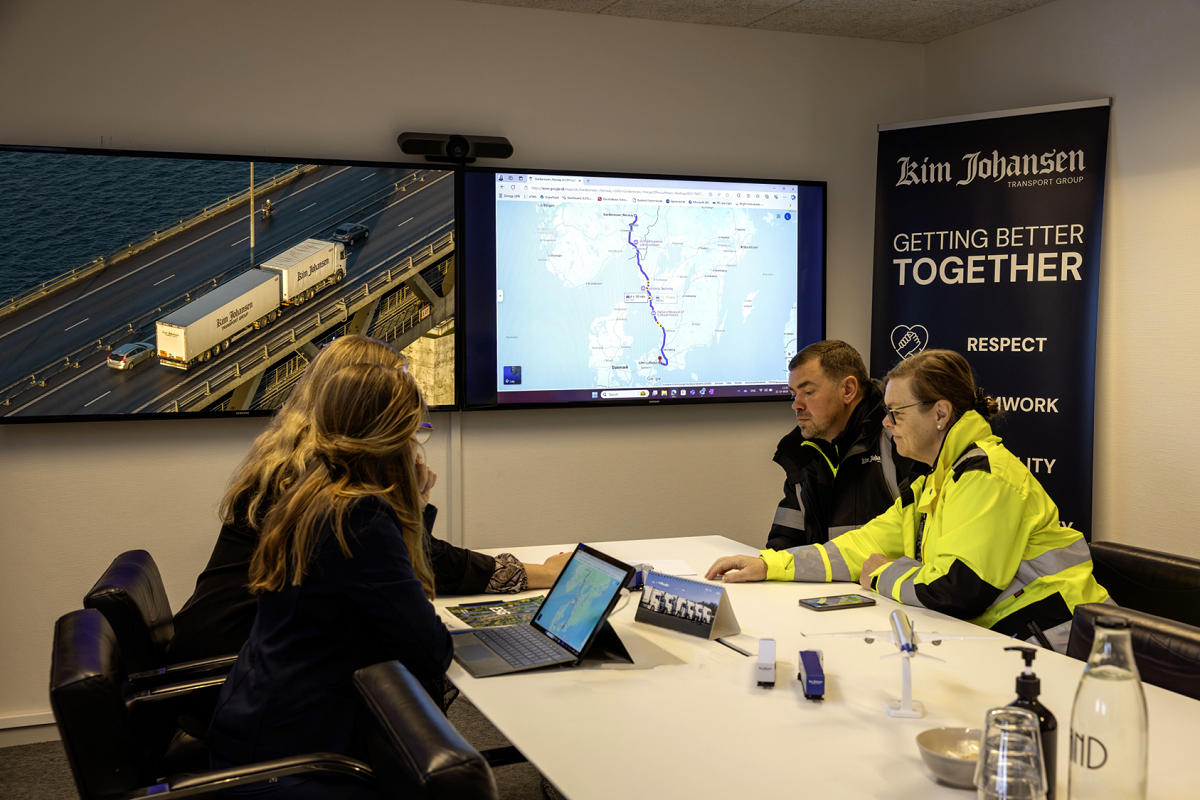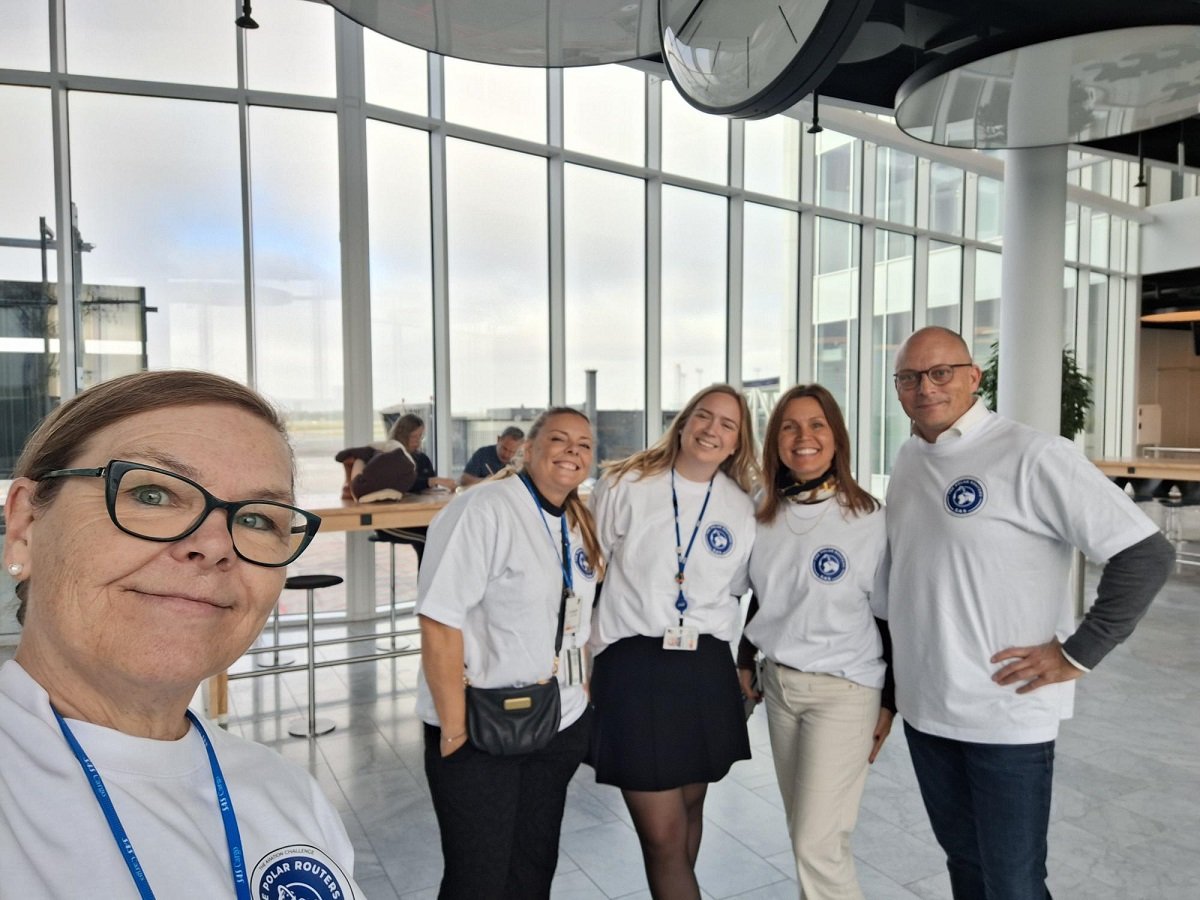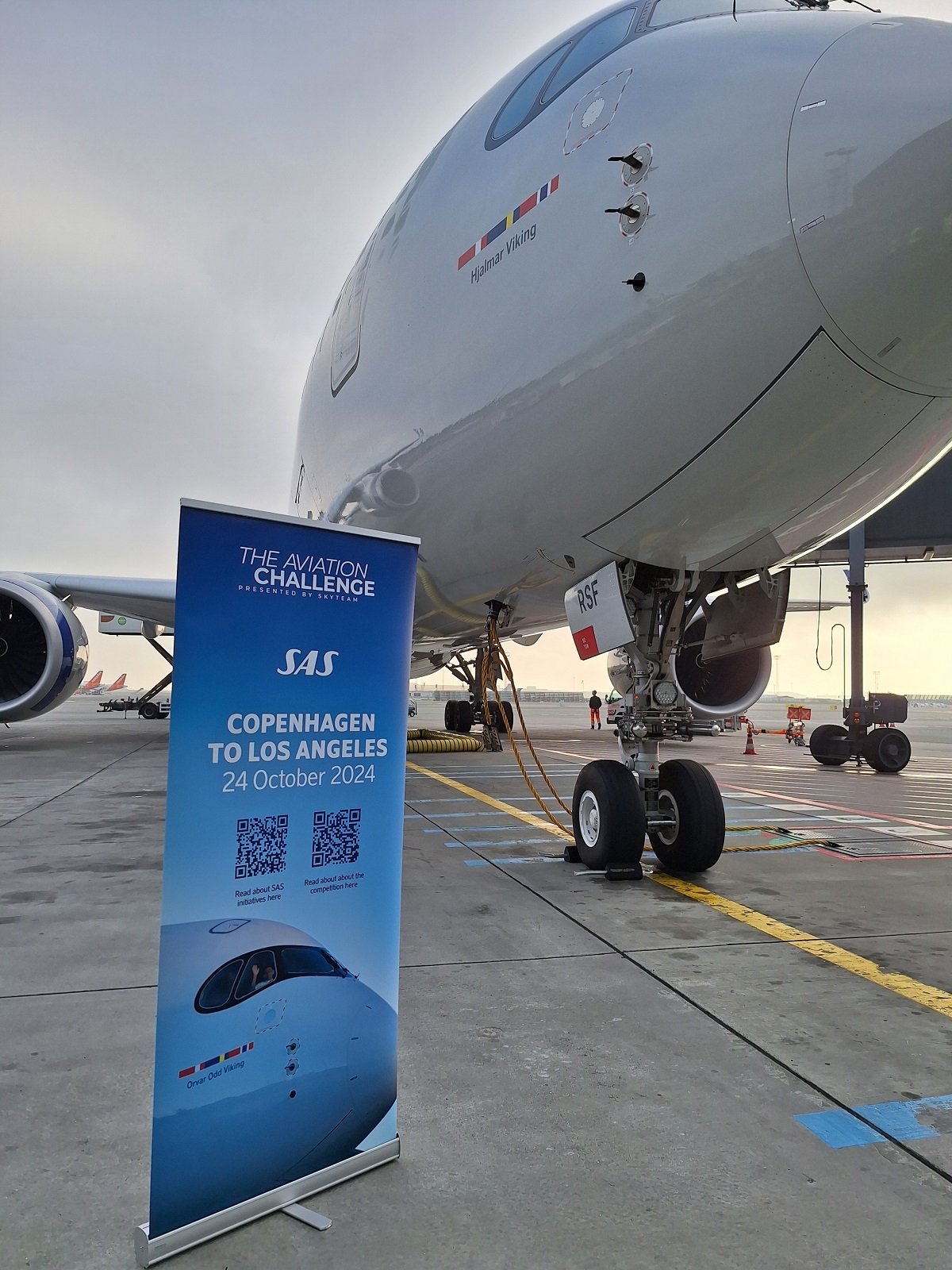About The Aviation Challenge
During a designated period, participating airlines operate flights from their existing networks with the goal of making them as sustainable as possible. Awards are given for flights with the lowest emissions, eco-friendly ground operations, waste reduction, and sustainability innovation.
Our 2024 Challenge
This year, we’re taking a comprehensive look at the entire flight experience—from planning and execution to pre- and post-flight activities—with a focus on the best sustainable result. A flight between Copenhagen and Los Angeles has been selected as our key challenger, featuring sustainable initiatives for both passengers and cargo.
This year also marks the 70th anniversary of SAS becoming the first airline to fly over the North Pole, connecting Copenhagen to Los Angeles in 1954—a groundbreaking achievement that was a sustainability milestone at the time. The polar route significantly shortened the journey between Europe and North America, saving fuel and reducing emissions—a bold demonstration of Scandinavian courage and innovation that aligns with today’s focus on operational efficiency and sustainability.
Here’s how we’re making this flight more sustainable:
Cargo-Specific Initiatives:
Lightweight Cargo Nets: In partnership with Unilode and AmSafe, we’ve reduced the weight of our cargo nets from the standard 17-20 kg to just 9 kg, helping decrease fuel consumption and emissions.
Biodegradable and Recycled Plastic Covers: For pallet protection, we’re using biodegradable or recycled plastic, reducing long-term environmental impact. We are recycling ALL plastic, but if disposed of, these plastics break down within 5-10 years (instead of 500+ years), and we’ve implemented an inspection program to ensure global recycling compliance.
Recyclable Lightweight Cardboard Planks: Traditionally, solid wooden planks are used to distribute cargo weight. We’ve replaced these with recyclable cardboard planks, which are 80% lighter but just as strong, improving both sustainability and ease of handling.
Electric Vehicles: Throughout the cargo handling process, from warehouse operations to ramp handling, we’re using electric vehicles wherever possible to minimize ground emissions.
Lightweight Containers: We utilize lightweight containers on all widebody flights to reduce the carbon footprint of our freight. Instead of the traditional solid-door AKE containers that weigh 72 kg, we now use lightweight containers that weigh only 65 kg, resulting in a savings of 7 kg per container. For this flight, we are carrying eight containers, which are used for cargo, airmail, and baggage.
Trucking Flight Pallets from OSL and FRA to Copenhagen: For this flight, we transport pallets from Oslo and Frankfurt to Copenhagen using new, fuel-efficient vehicles. This includes a Scania from Oslo and DAF from Frankfurt, both 2023 models. Some of the fuel used is biodiesel, and our trucks are operated by eco-trained drivers, which helps further reduce CO2 emissions per ton-kilometer. Additionally, the tires used on these trucks are recycled and reused, promoting a circular resource model.
Passenger-Related Initiatives:
Ground Power: While all-electric planes aren’t a reality yet, we’re ensuring that all ground operations for this flight use electric vehicles, and the aircraft itself is fueled with the maximum amount of locally-produced biofuel allowed.
Fuel Efficiency: We’ve handpicked a crew experienced in fuel-saving techniques and provided them with the latest route optimization tools to maximize fuel efficiency.
Plastic Reduction: Onboard and in ground operations, we’re minimizing the use of plastic and replacing it with sustainable materials such as cardboard and wood alternatives.
Sustainable Catering: Our in-flight meals are made with locally sourced, climate-friendly ingredients, with an emphasis on plant-based options.
Special thanks to our dedicated partners—Unilode, AmSafe, DHL, Maersk Senator International Spedition GmbH, Kim Johansen Transport A/S, Salmosped (a Kuehne+Nagel Company), GPC Gardemoen Perishable Center and Spirit.—for their invaluable collaboration with this aviation challenge.
